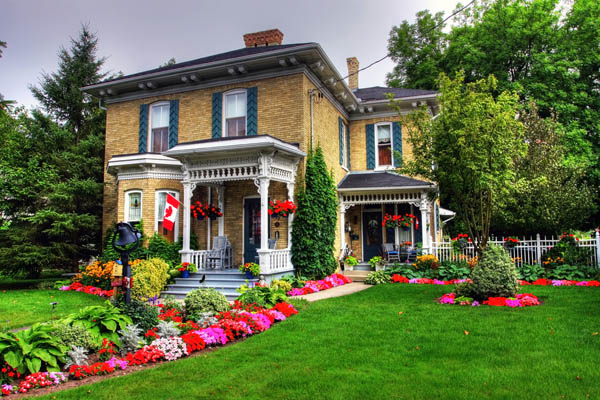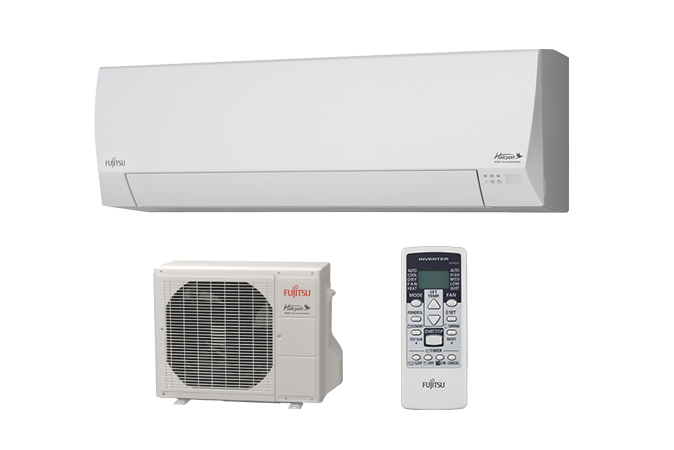The Challenges Of Cooling Historic Homes

The type of structure, materials, and method by which most historic homes were built does not lend itself easily to the installation of modern air conditioning systems. Despite being well-loved and maintained by their owners, historic home architecture and interior layouts make it a challenging decision to choose a suitable system. For example, such homes have walls that make no provision for the ductwork necessary for most HVAC models. Also, adding such ducting to a stately home could prove unsightly. Added to this is the problem of adequate insulation, as historic homes were built in a period where compliance and building regulations were not thought of. However, there is one solution that homeowners in this situation should take advantage of, and that would be to use ductless air conditioning. A ductless HVAC system will provide indoor comfort while retaining the integrity of your home’s exterior aesthetics.
What Can A Ductless Mini-Split System Do?
Contents
A ductless HVAC system is a compact, ingenious system that can both heat and cool targeted areas of the home, depending on the owner’s requirements. These models are referred to as ‘mini-split’ systems, and they include an evaporator unit that controls the indoor airflow and a compressor unit situated discreetly outdoors to reduce noise. An unobtrusive connecting conduit attaches to both the internal and outdoor compressor/condenser. To avoid the use of ducting, one or more of these mini-split systems may be needed to adequately control the temperatures in the entire home, depending on its size.
Benefits Of A Ductless HVAC System
There are clear advantages to installing a ductless air conditioner, especially for the historic homeowner. These include:
Increased Efficiency
Despite being insulated, ducting loses about 25% of the energy efficiency in conventional HVAC systems. So by eliminating the need for ducting, these losses are avoided. Traditional window-mounted air conditioning units may likewise avoid building alterations, but they are the least cost-effective units to run. By comparison, a ductless model is based on inverter technology, which is both efficient to run and has responsive temperature sensors that ration energy smartly. Since a ducted system loses more heat or cool air than a ductless one, its compressor has to start-up more often to maintain temperatures. Consequently, this is when the unit draws the most power. A ductless model saves money in another way too. Since it is an isolated, rather than a centralized system, it can be switched off when not needed. An ordinary HVAC keeps circulating warm or cool air through the whole house, including empty rooms, wastefully.
Indoor Air Quality
Mini-split systems operate more cleanly without ducting, as their filtration systems supply quality air more directly than their counterparts. Ductwork, on the other hand, can harbor many air contaminants, including dust and pollen particles, pet dander, microbes, and mold spores. Unless the ductwork receives regular maintenance, these airborne pollutants circulate throughout the home, where humans and pets inhale them. Window AC units likewise encourage bacterial growth and mildew, whereas a ductless system avoids these indoor air quality problems.

Climate Controlled Spaces
Your home has natural or created zones of sleeping, working, and living. The mini-split system gives you a degree of independent temperature control within these zones. For example, you can set the bedroom and kitchen to a warmer temperature while setting the living room to a cooler temperature. This customization of personal comfort is a feature of ductless systems.
Noiseless Operation
Compared to both centralized air conditioning and window installed systems, the mini-split model is whisper quiet. This is because window units include the compressor and no insulation. The large ducting systems of conventional HVACs can vibrate loudly with the flow of air. The indoor evaporator in a ductless system, however, uses small tubing to distribute air noiselessly into the room.

Simple Ductless Install
As can be imagined, the installing of a ductless system is simple and fast, since there is virtually no construction alterations or positioning of ductwork. An installation technician can be through with setting up your new mini-split model in only a few hours or so, whereas a centralized air conditioning system is a major project for most houses. This would be extremely disruptive in a lovely historic home.
Kind To The Environment
Since ductless systems reduce the power requirements of the household, an equivalent amount of the planet’s resources is preserved. In addition, the inverter-driven mini-split uses coolants that are non-polluting, so you can enjoy indoor comfort while also caring for the great outdoors.
Reducing Your Home Cooling And Heating Bill

More energy-efficient operating costs, as well as lower installation costs, means lower bills for the monthly household budget. Naturally, savings will vary depending on the size of the home and how you use your new system. However, independently assessed SEER ratings on ductless AC models are the best among virtually all other air conditioning systems available.
Will A Ductless HVAC System Undermine The Historic Home’s Building Integrity?
The primary advantage of the ductless system is, of course, the elimination of ducting altogether. The installation of a ducted HVAC system might be easy in a home while it is still in construction. However, any installation of ductwork into an existing home impacts the home structure extensively. It requires the removal of ceiling and wall plasterboards and other damage. The repairs and re-painting all add to the heavy cost of such work. Compare this with a single three-inch hole drilled to connect the indoor and outdoor units of a compact ductless system, and you will soon see that the disruption to the household, in this case, will be negligible.
How Does A Window AC Compare With A Ductless System?
While a simple window AC system may offer some benefits to historic homeowners, notably in avoiding the problems associated with ductwork installations, there is a downside to these units. Unless carefully positioned, they will be detrimental to the good looks of your home. Compared to the slimline modern styling of the mini-split AC outdoor unit, the window AC system looks awkward. It will inconveniently block sunlight if housed in a window frame. Otherwise, it will require making a window-sized hole if put through the wall. Being uninsulated, they are generally susceptible to frost damage and need removing and storing away over winter. The gap a window AC system makes can be a security hazard, and they are notoriously noisy. In every way, a mini-split ductless system is likely to be the alternative of choice for a historic homeowner.
Concluding Notes
A home that has stood for a century or more is a unique and special residence. It deserves the care that only preserves and enhances its beauty. Built before the electronic age, they present an engineering challenge when it comes to installing a suitable air conditioning solution. All things considered, a ductless mini-split AC system meets the criteria for both good value air conditioning and retaining the authenticity and appeal of the historic home. To know more about an ideal solution for your home’s AC needs, contact your local HVAC company today.
Call Miller Oil Company To Learn More About Ductless Mini-Split Systems

Miller Oil Company provides exceptional cooling and heating services for your area. We employ only the highest qualified contractors who are happy to offer guaranteed HVAC repairs, maintenance, installations, and replacements. Our technical staff has the experience and product knowledge to advise you expertly.
Miller Oil Company is an established company able to provide the best possible rates for your local area. We commit to providing the most appropriate solution for your needs and at the best value available. We can accomplish this with the homeowner’s budget in mind. As we only source exceptional quality components. We know we will be able to improve your air quality and comfort, and energy efficiency. You can arrange an obligation-free, in-home quote when you call Miller Oil Company today.
Click here to contact us today or give us a call at (860) 745-0326 if you have any questions.